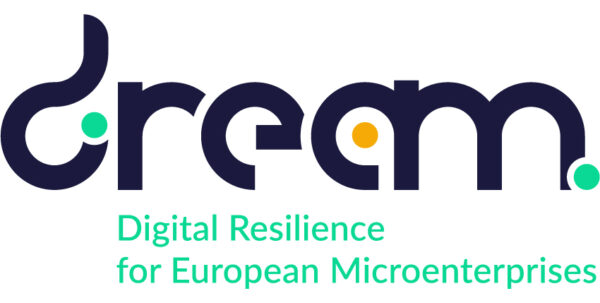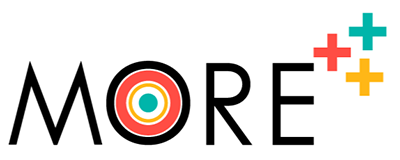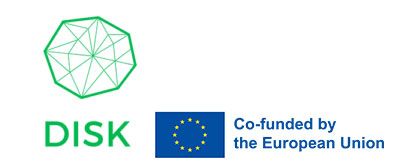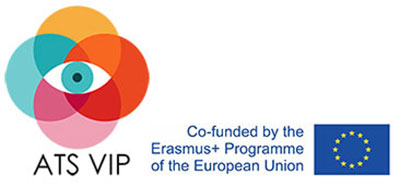
EUROPEAN PROJECTS
It Solutions for All started to participate in European Erasmus + projects as an associate partner, working on projects of different nature, from helping to preserve traditional crafts, to help women learn about and master new technologies, to give a couple of examples.
The Hypatia project aims to develop a high-impact awareness-raising program on the phenomenon of the Gender Digital Gap, with particular attention to the most vulnerable women, such as “housemakers.” These women, often victims of online violence, are underrepresented in gender equality policies and the promotion of digitalization. The project includes the creation of an innovative and interactive OER platforma to provide basic digital skills to “housemakers,” also addressing the risks and pitfalls of new technologies, such as online gender-based violence, which primarily affect the least digitally literate individuals.
Furthermore, Hypatia will develop a digital literacy program for “housemakers” in Italy, Spain, the Czech Republic, and Malta, a report with policy recommendations for decision-makers, and a multimedia awareness campaign aimed at transcending traditional forms of communication
UNITY EUROPE is a project co-funded by the European Union, in the framework of the Erasmus+ Programme, Key Action 2 – Cooperation partnerships in youth. The project is implemented by a partnership of six organisations from France, Spain, Italy, Belgium, Cyprus and Türkiye.
The project aims to enhance the social and professional integration of young immigrants (aged 18 to 30) in Europe by equipping them with essential skills and fostering active citizenship.
DREAM (Digital Resilience for European Microenterprises) is an innovative and timely project that tackles the challenges of COVID-19 and digitalization in the two worlds of Vocational Education & Training (VET) and Small and Medium Enterprises, with a focus on microenterprises with less than 10 staff (MSMEs).
More: Multifunctional role of women as a key driver for rural development.
According to the EU Parliament, the multifunctional role of women is essential to save rural areas in Europe, whose population is expected to shrink to almost 8M by 2050, in contrast with a fast-growing urban population that will reach 24M by 2050. Rural women still face serious disadvantages, compared not only to rural men, but also to urban women.
The MORE project aims to improve the access to, and the quality of, training opportunities and qualifications of rural EU women.
The SWIFT project stands as a concrete response to the pressing need of equipping SMEs with new, innovative and “agile” business models.
SWIFT specifically targets this most vulnerable yet essential segment of European economies to bridge the skill gap and make SMEs more flexible, responsive, efficient and thus able to stay afloat during the COVID-19 crisis and in the post-pandemic world.
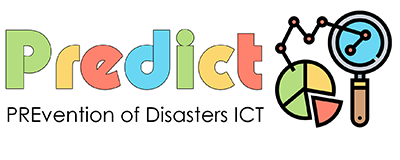
Predict: Prevention of Disasters ICT. It studies the situation in several European countries regarding the prevention and response to natural disasters and catastrophes for the most fragile populations (children, young people and disabled people) and will provide interesting information and training materials through its online platform.
ATS VIP: Accessible Travel Solutions for Visually Impaired Persons. It focuses on studying the needs of European travellers with visual impairment and blindness through its experience, to find aids and solutions to make travel a safe and satisfying activity.

ARTCademy is a knowledge-based project which aims to preserve and strengthen the European artisan and traditional crafts sector. For this purpose, it will work in two ways: first, keeping and protecting ancestral knowledge concerning to traditional jobs, particularly these in risk of disappearing; second, providing to these sector’s firms tools and skills for their survival and development as profitable businesses.
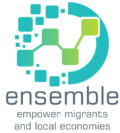
Ensemble aims to develop and validate an INNOVATIVE NFIL MECHANISM focusing on the needs of the migrant that will help VET’s educators to identify and assess the NFIL professional competences of migrants groups and allow migrants to play a central role in the integration process.

MICRO supports the development of basic and transversal skills (such as entrepreneurship, ability to operate in the EU Single Market, self-employment) in an innovative way: the innovative method of MICRO relies on its bottom-up and demand driven approach while consolidating on the expertise and experience of VET practitioners and technical experts.




